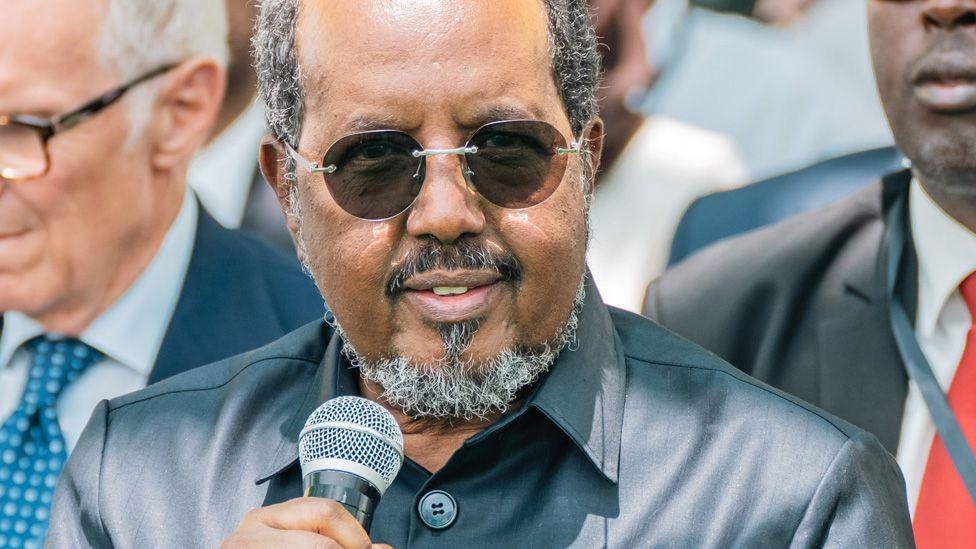In Somalia, a country still navigating the challenges of rebuilding its social, political, and cultural fabric after decades of conflict, even a dance video can ignite a nationwide controversy. Recently, several Somali TikTok stars found themselves detained after posting a dance video that appeared to mock President Hassan Sheikh Mohamud. The incident has raised serious questions about freedom of expression, government censorship, generational divides, and the role of social media in a rapidly changing society. While the case might sound trivial at first glance, it carries profound implications for politics, digital culture, and the future of democracy in the Horn of Africa.
- The Incident: How a Dance Video Sparked Detentions
- Freedom of Expression Versus Government Control
- The Role of Social Media in Somali Society
- Generational Divide: Youth Culture Versus Political Authority
- The Legal and Political Implications
- Reactions from the Somali Public
- Expert Opinions on Digital Satire and Political Stability
- Regional and Global Parallels
- Possible Outcomes and Future Implications
- FAQs
- Why were Somali TikTok stars detained?
- What charges do the influencers face?
- How has the public reacted to the arrests?
- What role does TikTok play in Somalia?
- Are there global parallels to this case?
- What are the risks of suppressing satire in Somalia?
- Conclusion
The arrests did not happen in isolation. They come amid growing unease within Somali political circles about the expanding influence of social media platforms like TikTok, Instagram, and YouTube, which have become major outlets for young Somalis to express themselves. The government’s strong response to a seemingly lighthearted video reveals deeper anxieties about political criticism, satire, and the challenge of balancing cultural norms with modern digital trends.
The Incident: How a Dance Video Sparked Detentions
The controversy began when a group of Somali TikTok influencers, most of them young content creators with thousands of followers, posted a dance routine in which they mimicked and exaggerated the gestures and speaking style of President Hassan Sheikh Mohamud. The video was edited with playful background music, sound effects, and comedic timing, which made it widely shareable. Within hours, the clip went viral, attracting both laughter and criticism.
Authorities viewed the video as an insult to the presidency and a deliberate attempt to humiliate the country’s leadership. Security forces swiftly detained the creators, citing charges of disrespecting the head of state and spreading content that “undermines national dignity.” For the influencers, what began as a comedic act turned into a serious confrontation with state power. Their arrest sent a chilling message to other young content creators who often push boundaries for entertainment and engagement.
Freedom of Expression Versus Government Control
This incident highlights the ongoing tension between freedom of expression and state authority in Somalia. While the country’s provisional constitution guarantees basic rights, the interpretation and enforcement of those rights remain inconsistent. Critics argue that the government is increasingly intolerant of dissent, whether it comes from journalists, opposition figures, or social media personalities.
Somalia ranks low on global press freedom indexes. According to Reporters Without Borders, Somalia continues to be one of the most dangerous places for journalists in Africa. The government’s latest move against TikTok stars illustrates how digital spaces, once thought of as safe havens for creativity, are now under scrutiny. Analysts believe that Somali leaders are worried about the power of humor and satire in shaping public opinion, particularly among young people who make up more than 70% of the population.
The Role of Social Media in Somali Society
Over the past decade, Somalia has experienced a social media revolution. Platforms like TikTok have given young Somalis new opportunities to showcase talent, discuss politics, and connect with the diaspora. With limited access to traditional media, social media has become a primary channel for information and entertainment. Content creators often address sensitive topics such as corruption, unemployment, and governance in ways that resonate with ordinary citizens.
TikTok, in particular, has exploded in popularity in Somalia. Short videos are easy to produce, entertaining, and accessible even on low internet bandwidth. According to local reports, thousands of Somali youths are creating content daily, ranging from comedy skits and dance challenges to political commentary. This has created a new wave of digital celebrities who command influence far beyond their local communities. The government’s concern reflects not just political sensitivity but also recognition of the platform’s ability to mobilize public sentiment.
Generational Divide: Youth Culture Versus Political Authority
At the heart of this controversy is a stark generational divide. Somalia’s political class, many of whom came of age during civil war and governance struggles, often prioritize respect for authority and traditional values. Younger Somalis, however, are growing up in a digital-first environment where humor, memes, and satire are standard forms of communication.
To the older generation, mocking the president crosses a line of disrespect and threatens national stability. To the younger generation, it is simply a creative expression—a way to cope with hardship and bring attention to political issues. This clash illustrates a broader cultural struggle about how Somali society should adapt to globalization, digital communication, and freedom of expression.
The Legal and Political Implications
The detention of the TikTok stars also has legal consequences. Human rights advocates argue that such arrests violate Somalia’s commitments under international conventions that protect freedom of speech. They warn that criminalizing humor could create a culture of fear that silences legitimate criticism. In democratic societies, political satire is often celebrated as a check on power. By punishing it, Somalia risks sending the opposite message—that leaders are beyond accountability.
Politically, the arrests may backfire. Instead of silencing criticism, the government’s response has amplified global attention on the issue. The video, which might have faded into the background after a few days, is now being discussed internationally. Somali activists in the diaspora have already begun circulating hashtags demanding the release of the detained influencers, framing the case as part of a larger struggle for freedom of expression in Somalia.
Reactions from the Somali Public
Public reaction to the arrests has been divided. Many young people see the detentions as an overreaction and a violation of free speech. On TikTok and other platforms, users have responded by reposting the video, making reaction videos, and even creating new satirical content in solidarity with the detained creators. This “Streisand Effect”—where attempts to censor something only make it more popular—seems to be unfolding in Somalia.
At the same time, some segments of Somali society, especially older citizens and political loyalists, support the government’s decision. They argue that mocking the president undermines respect for national institutions at a time when Somalia is battling terrorism, political instability, and economic hardship. This perspective highlights a deep cultural divide about what kind of public discourse is acceptable.
Expert Opinions on Digital Satire and Political Stability
Experts in African politics and digital culture note that humor has always played a powerful role in political resistance. Dr. Amina Warsame, a Somali sociologist, explained in a recent interview that satire “allows citizens to challenge authority in ways that are less confrontational than direct protest. However, when governments treat satire as a crime, it reveals deep insecurities about their legitimacy.”
Digital rights organizations, such as Access Now and Amnesty International, have criticized Somalia’s handling of the case. They argue that restricting online expression will not solve political problems but will instead alienate young people who are already frustrated by unemployment and limited opportunities. According to the World Bank, Somalia’s youth unemployment rate stands at nearly 67%, one of the highest in the world. Silencing their creative outlets only risks fueling further discontent.
Regional and Global Parallels
Somalia is not the only country grappling with the intersection of politics, culture, and social media. Across Africa and beyond, governments have clashed with digital creators over content deemed offensive or politically sensitive. In Egypt, comedians and TikTok influencers have been jailed for videos criticizing authorities. In Nigeria, musicians and satirists have faced harassment for mocking leaders. Even in more established democracies, debates over political satire and social media regulation continue.
These parallels show that the Somali case is part of a global trend where digital platforms empower ordinary people to challenge traditional authority structures. The outcome of this case may influence how Somali society navigates the future of digital expression.
Possible Outcomes and Future Implications
The fate of the detained TikTok stars remains uncertain. They could face formal charges, a symbolic warning, or eventually be released under public pressure. Whatever the legal outcome, the incident has already left a lasting impact on Somalia’s digital landscape. Content creators may become more cautious, fearing retaliation. At the same time, the controversy has drawn attention to the growing importance of digital rights in Somali political discourse.
Long-term, the government faces a difficult choice. Cracking down on social media might preserve short-term political control but risks alienating the majority of the population. Embracing digital creativity, even when it includes satire, could foster a more open, dynamic society. The path Somalia chooses will reflect not just its stance on free speech but also its vision for a democratic future.
FAQs
Why were Somali TikTok stars detained?
They were detained after posting a dance video that mocked President Hassan Sheikh Mohamud, which authorities considered disrespectful and undermining to national dignity.
What charges do the influencers face?
Although formal charges have not been fully detailed, they are accused of spreading content that disrespects the presidency and threatens public order.
How has the public reacted to the arrests?
Public reaction is mixed. Many young people see the arrests as a violation of free speech, while some older citizens support the government’s move, viewing it as necessary to preserve respect for national institutions.
What role does TikTok play in Somalia?
TikTok has become one of the most popular platforms in Somalia, giving young people a space for creativity, entertainment, and political commentary. It has created a new generation of digital influencers who shape public opinion.
Are there global parallels to this case?
Yes. Similar incidents have occurred in countries like Egypt, Nigeria, and even established democracies, where governments clash with satirists and content creators over political criticism.
What are the risks of suppressing satire in Somalia?
Suppressing satire risks silencing free expression, alienating youth, and fueling discontent. It may also damage Somalia’s international reputation and hinder democratic development.
Conclusion
The detention of Somali TikTok stars over a dance video mocking President Hassan Sheikh Mohamud is about far more than a viral clip. It exposes deep tensions between tradition and modernity, authority and freedom, stability and creativity. For a nation still rebuilding after decades of conflict, how Somalia handles this controversy will shape its digital culture and democratic future. The government must balance respect for leadership with tolerance for satire, understanding that humor is not a threat but a reflection of society’s voice. As young Somalis continue to embrace social media, the country faces a critical choice: whether to silence them or allow their creativity to flourish as part of a vibrant and evolving democracy.







